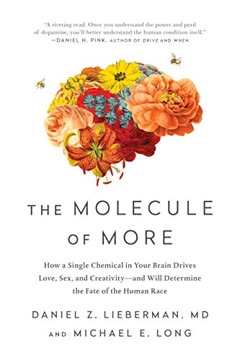Key Takeaways
1. Depression is a devastating disease, not a romantic affliction
Depression destroys families. It ruins careers. It ages patients prematurely. It attacks their memories and their general health.
Challenging misconceptions. For centuries, depression has been romanticized as a source of creativity and depth. However, this view ignores the devastating reality of the disease. Depression is not a noble suffering or a sign of sensitivity, but a debilitating condition that causes immense pain and dysfunction.
Concrete impacts. Depression's effects are far-reaching:
- Personal relationships: Strain on families, isolation from friends
- Professional life: Decreased productivity, job loss
- Physical health: Accelerated aging, increased risk of other illnesses
- Cognitive function: Memory problems, difficulty concentrating
- Quality of life: Loss of pleasure, chronic pain, suicidal thoughts
2. Modern research reveals depression's biological basis and harmful effects
Depression is a disease of extraordinary magnitude—one of the most devastating diseases human beings suffer.
Neurobiological evidence. Recent scientific advancements have unveiled depression's biological underpinnings:
- Brain imaging studies show structural changes in depressed individuals
- Abnormalities in neurotransmitter systems, particularly serotonin and norepinephrine
- Disruptions in stress response systems and hormonal regulation
Quantifiable impact. Depression's harm is measurable and significant:
- Leading cause of disability worldwide
- Substantial economic burden through healthcare costs and lost productivity
- Increased risk of other medical conditions, including heart disease and stroke
- Higher mortality rates, both from suicide and other causes
3. Depression is a spectrum disorder with widespread impact
Depression is solidly continuous, in the manner of high blood pressure. Less depression is better and more is worse, in terms of disability and future risk; but everywhere, good- and bad-outcome cases are admixed.
Continuum of severity. Depression is not a binary condition but exists on a spectrum:
- Major depressive disorder: Most severe form, meeting full diagnostic criteria
- Dysthymia: Chronic, less severe depressive symptoms
- Subsyndromal depression: Some symptoms present, but not meeting full criteria
Pervasive effects. Even milder forms of depression can have significant impacts:
- Increased risk of developing major depression
- Impaired social and occupational functioning
- Higher healthcare utilization and costs
- Reduced quality of life and overall well-being
4. Genetic and environmental factors interplay in depression's development
Depression is the model illness for gene-environment interactions.
Genetic vulnerability. Heredity plays a significant role in depression risk:
- Twin studies show heritability of about 40%
- Specific genes identified that increase susceptibility
Environmental triggers. Life experiences can activate or exacerbate depression:
- Childhood trauma or neglect
- Stressful life events (e.g., loss, failure, conflict)
- Chronic stress or adversity
Complex interplay. Genes and environment interact in multiple ways:
- Gene-environment correlation: Genetic predisposition may lead to seeking out or creating stressful environments
- Epigenetics: Environmental factors can influence gene expression
- Stress sensitization: Early adversity can lower the threshold for future depressive episodes
5. Depression impairs resilience and neuroplasticity
Depression looked like a lack of armor in a hostile world. A second insufficiency might also be at issue, in the resources needed for recovery, once an attack has done its damage.
Compromised stress response. Depression weakens the brain's ability to cope with challenges:
- Overactive stress hormone system
- Reduced ability to regulate emotions
- Impaired cognitive flexibility and problem-solving
Neuroplasticity deficits. Depression interferes with the brain's capacity for change and growth:
- Decreased neurogenesis (formation of new neurons)
- Reduced synaptic plasticity
- Impaired learning and memory formation
Vicious cycle. These impairments can perpetuate and worsen depression:
- Increased vulnerability to future stressors
- Difficulty benefiting from positive experiences
- Prolonged recovery times and higher relapse rates
6. Treating depression does not diminish emotional depth or creativity
Protected from depression, we are free to be quirky, free to be neurotic, free to care.
Misconceptions debunked. Concerns about antidepressants "numbing" emotions or stifling creativity are largely unfounded:
- Effective treatment restores emotional range, not flattens it
- Many artists report improved creativity when depression is treated
- Resilience allows for deeper engagement with life and art
Enhanced functioning. Treating depression often leads to:
- Greater emotional flexibility and authenticity
- Improved cognitive function and creative problem-solving
- Increased capacity for meaningful relationships and experiences
Preserving individuality. Depression treatment aims to alleviate suffering, not alter personality:
- Core traits and values remain intact
- Increased resilience allows for fuller expression of self
7. Eradicating depression could lead to a more vibrant, productive society
How much freer we would be to live life, knowing ourselves to be reliably resilient.
Societal benefits. A world without depression could see:
- Increased productivity and economic growth
- Reduced healthcare costs and burden on social services
- Stronger families and communities
- Greater scientific and artistic achievements
Individual flourishing. Freedom from depression allows people to:
- Pursue goals and passions without debilitating setbacks
- Form deeper, more satisfying relationships
- Experience a fuller range of emotions and experiences
- Contribute more fully to society
Ethical considerations. While some may worry about "medicating away" normal human experiences, eradicating depression:
- Does not eliminate sadness or other normal emotions
- Enhances rather than diminishes human potential
- Aligns with efforts to prevent and treat other devastating diseases
Last updated:
Review Summary
Against Depression argues that depression is a serious disease, not a romantic or artistic trait. Kramer challenges cultural myths about depression's benefits and emphasizes its harmful physical effects on the brain. He advocates for viewing depression as a treatable illness rather than a normal part of the human experience. While some readers found the book insightful and well-researched, others criticized its writing style and repetitiveness. Overall, the book presents a compelling case for taking depression seriously as a medical condition that should be eradicated.
Similar Books










Download PDF
Download EPUB
.epub digital book format is ideal for reading ebooks on phones, tablets, and e-readers.




